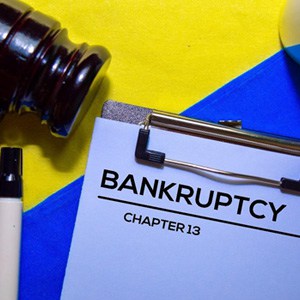 Understanding Chapter 13 Bankruptcy
Understanding Chapter 13 Bankruptcy
Chapter 13 bankruptcy, also known as reorganization bankruptcy, is designed for individuals who have a regular income and can pay back a portion of their debts through a repayment plan. It’s a viable solution for those behind on their car or house payments and facing possible repossession or foreclosure. By filing for Chapter 13, you can reschedule these payments over a five-year period, providing the chance to get back on track.
This type of bankruptcy is also a beneficial tool for handling back taxes that cannot be discharged. The creditors, including the IRS, are prohibited from taking action against you during bankruptcy proceedings. This mechanism not only aids in keeping your assets intact but also provides a structured, manageable plan to gradually pay your debts.
Discharging Debts Under Chapter 13
In a Chapter 13 bankruptcy, the process begins immediately once you file. A meeting with creditors usually takes place about a month later. If all payments are made as scheduled, the process runs smoothly over the five-year plan. However, missed payments could lead to objections, requests for case dismissal, or disputes over the compliance of your Chapter 13 plan with regulations. The process is similar to Chapter 7 but requires more commitment to a structured payment plan.
Benefits Of Filing Chapter 13
The key advantages of Chapter 13 bankruptcy are the avoidance of repossession, levies, and garnishments. It offers a financial lifeline for managing non-dischargeable debts and grants you the much-needed breathing room to regain your financial footing.
Assets And Chapter 13 Bankruptcy
With Chapter 13, you can retain all assets that are safe under Chapter 7, and even keep non-exempt property, provided that you pay the non-exempt amount to the trustee. The only limitation is what you can afford to pay for. If you are over your exemptions, you can pay the exceeding amount to the trustee over five years. This flexibility allows you to keep a broader range of assets compared to Chapter 7.
Duration Of Chapter 13 Bankruptcy
A Chapter 13 bankruptcy plan lasts a minimum of three years and a maximum of five. However, most people opt for a five-year plan, as it keeps the monthly payments more manageable. Depending on the value of the collateral, you can also reduce the amount you pay on secured debts over this period. However, if the value of the collateral is less than the amount of debt, or if you purchased the asset close to filing bankruptcy, you may have to pay the debt in full. Nonetheless, Chapter 13 can offer a more tailored approach to handling debt and preserving assets compared to other forms of bankruptcy.
For more information on Filing A Chapter 13 Bankruptcy In Arkansas, an initial consultation is your next best step. Get the information and legal answers you are seeking by calling (501) 200-8850 today.